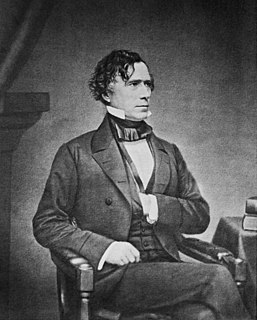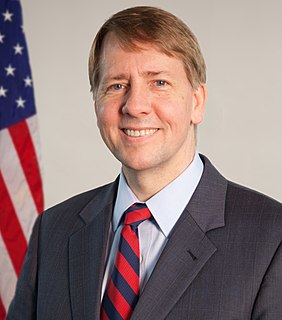A Quote by James K. Polk
Public opinion: May it always perform one of its appropriate offices, by teaching the public functionaries of the State and of the Federal Government, that neither shall assume the exercise of powers entrusted by the Constitution to the other.
Related Quotes
The proposed constitution, therefore, even when tested by the rules laid down by its antagonists, is, in strictness, neither a national nor a federal constitution; but a composition of both. In its foundation it is federal, not national; in the sources from which the ordinary powers of the government are drawn, it is partly federal, and partly national; in the operation of these powers, it is national, not federal; in the extent of them again, it is federal, not national; and finally, in the authoritative mode of introducing amendments, it is neither wholly federal, nor wholly national.
The constitutionality and propriety of the Federal Government assuming to enter into a novel and vast field of legislation, namely, that of providing for the care and support of all those ... who by any form of calamity become fit objects of public philanthropy. ... I cannot find any authority in the Constitution for making the Federal Government the great almoner of public charity throughout the United States. To do so would, in my judgment, be contrary to the letter and spirit of the Constitution and subversive of the whole theory upon which the Union of these States is founded.
A state that denies its citizens their basic rights becomes a danger to its neighbors as well: internal arbitrary rule will be reflected in arbitrary external relations. The suppression of public opinion, the abolition of public competition for power and its public exercise opens the way for the state power to arm itself in any way it sees fit.... A state that does not hesitate to lie to its own people will not hesitate to lie to other states.
Fashion is not public opinion, or the result of embodiment of public opinion. It may be that public opinion will condemn the shape of a bonnet, as it may venture to do always, and with the certainty of being right nine times in ten: but fashion will place it upon the head of every woman in America; and, were it literally a crown of thorns, she would smile contentedly beneath the imposition.
The tenth amendment said the federal government is supposed to only have powers that were explicitly given in the Constitution. I think the federal government's gone way beyond that. The Constitution never said that you could have a Federal Reserve that would have $2.8 trillion in assets. We've gotten out of control.
I consider the government of the United States as interdicted by the Constitution from intermeddling with religious institutions, their doctrines, discipline, or exercises. This results not only from the provision that no law shall be made respecting the establishment or free exercise of religion, but from that also which reserves to the States the powers not delegated to the United States. Certainly, no power to prescribe any religious exercise or to assume authority in any religious discipline has been delegated to the General Government. It must then rest with the States.
[The Massachusetts constitution] resembles the federal Constitution of 1787 more closely than any of the other revolutionary state constitutions. It was also drawn up by a special convention, and it provided for popular ratification - practices that were followed by the drafters of the federal Constitution of 1787 and subsequent state constitution-makers.
It [the Constitution] didn't break free from the essential constraints that were placed by the founding fathers in the Constitution, at least as it's been interpreted, and the Warren court interpreted it in the same way that generally the Constitution is a charter of negative liberties. It says what the states can't do to you, it says what the federal government can't do to you, but it doesn't say what the federal government or the state government must do on your behalf. And that hasn't shifted.
In explaining the Constitution, James Madison, the acknowledged father of the Constitution, wrote in Federalist Paper 45: 'The powers delegated by the proposed Constitution to the Federal government are few and defined. Those which are to remain in the State governments are numerous and indefinite. The former will be exercised principally on external objects, as war, peach, negotiation, and foreign commerce.' Has the Constitution been amended to permit Congress to tax, spend and regulate as it pleases or have Americans said, 'To hell with the Constitution'?
I see,... and with the deepest affliction, the rapid strides with which the federal branch of our government is advancing towards the usurpation of all the rights reserved to the States, and the consolidation in itself of all powers, foreign and domestic; and that, too, by constructions which, if legitimate, leave no limits to their power... It is but too evident that the three ruling branches of [the Federal government] are in combination to strip their colleagues, the State authorities, of the powers reserved by them, and to exercise themselves all functions foreign and domestic.




























